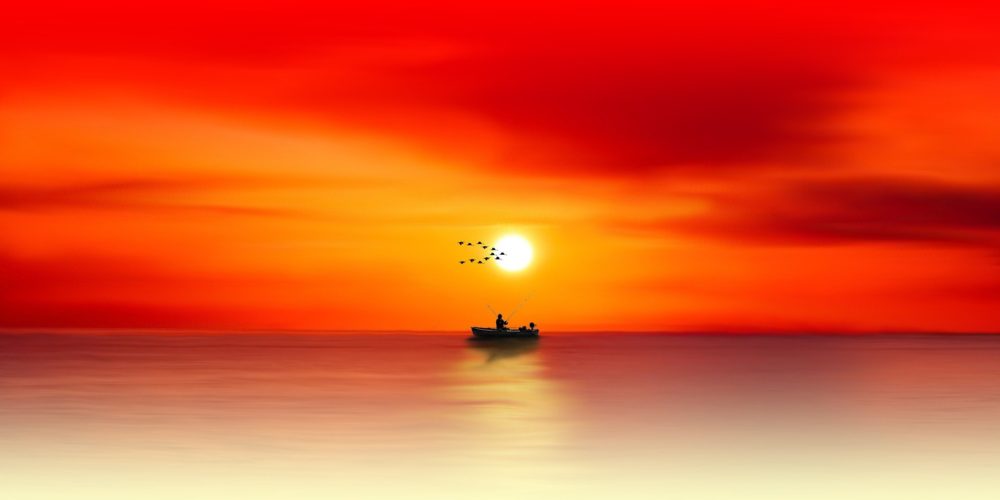As this unusual year ends, let go of the search for more

I recently gathered some of the alumni of the leadership programme I founded, to reflect on this craziest of years. My question to them in this virtual congregation was this: yes, we were all caught napping by the pandemic; yes, we all achieved some remarkable business pivots; but what are the lasting lessons of this crisis? How will you be different from now on?
There was a common thread in the most thoughtful responses. Let me share some voices from some of our most senior business leaders:
“I was forced to reflect on the meaning of life. Is it really all about advancement and achievement?”
“It turned out that not all the stuff we used to do was important. I have cut many things out, and hope to focus on the essential only from now on.”
“Losing control led to a more peaceful acceptance of things I cannot affect.”
“Stop assuming we have plenty of time to do good. Life is really short.”
“Humanity and human connections first, not last.”
What the crisis forced so many to reflect deeply on is something I have tried to write about for decades now: what do we do it all for? Why do we stress and obsess, rush and push? What’s the point of all that relentless activity?
For most people, the answer is simple. We do it so we can have more. More money more status more power more opportunity more advancement more respect more applause more belongings more more more.
Most of that is more for ourselves, please note, not for others.
I have interacted with a lot of people who have a lot. They have the power and money and positions that the rest crave. And yet. Do they look happy or contented? The subtexts of most of their conversations are about one thing only: it’s not enough. Got to keep going. Got to do more, achieve more, earn more.
The ancients knew the folly of this. They told us: wretched are all those motivated by the fruits of their actions, for they will never taste them. Back in 2003, the very first year I started writing this column, I noted:
“If we are going to spend our entire existence worrying about (more), real life will pass us by. True joy lies not in things that can be taken away; it lies in that which is given freely to all, and in great abundance. It is in observing the bird soaring in the sky; in listening to the child’s gurgling laugh. It is in smiling at strangers and touching their lives in the smallest way. It is in living each moment as it comes to us, not in dreaming of future prosperity.”
We should try to achieve big things in our lives, don’t get me wrong. We should build great organizations that deliver great products, provide great careers, solve the needs of society. We should scale things up, reach more people, play big. That takes work. And stress.
But we should also pause and see the bigger picture. We should also learn to enjoy the moment and its unfolding, not just strive for grandiose futures. We should also forgive ourselves and accept that sometimes whatever we have done so far is good enough, and we don’t have to be pushing and striving until our final breaths. We should ask ourselves which part of what we do makes this world a better place – for someone else, not just ourselves.
It is in that generosity that the real meaning of our lives is hidden.
This pandemic year should have proved many things to us, beyond doubt. That our lives are fragile, and can end on a random occurrence. That everything material we hold can slip through our fingers like dust. That perhaps we should sometimes pause to think about less, not always about more.
Jerome K. Jerome wrote a remarkable book called Three Men in a Boat more than a century ago. It is a comic novel that I first encountered in my school library. I have not stopped laughing since that time, and yet it is also a work of rare profundity. As you also take pause this year-end, let me leave you with its best thought:
“Let your boat of life be light, packed with only what you need – a homely home and simple pleasures, one or two friends, worth the name…You will find the boat easier to pull then, and it will not be so liable to upset, and it will not matter so much if it does upset…You will have time to think as well as to work. Time to drink in life’s sunshine…”
(Sunday Nation, 20 December 2020)

Buy Sunny Bindra's new book
The X in CX
here »
Popular Posts
- Where are you rushing to—your funeral?June 29, 2025
- How to spot a real thinkerJune 15, 2025
- The map will appear—once you start walking.July 6, 2025
- Built the app, forgot the flowJune 22, 2025
- The pause that saves usJune 8, 2025















